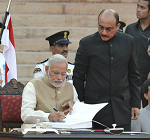In a marked departure from India’s status-quo foreign policy which ran unchanged for decades, Prime Minister Narendra Modi’s early moves indicate a change is in the air. His invitation to eight heads of state in the immediate neighbourhood to his swearing-in ceremony was an unprecedented move – a sign perhaps that under the leadership of the new prime minister, India will pro-actively engage with the rest of world.
How are these moves being viewed across the globe? Here are perspectives from experts from seven countries:
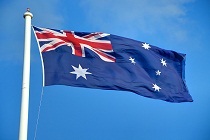 “India must now pay much more attention to its security relationships with key middle powers of the Indian Ocean and Asia Pacific regions – and in practical terms Australia should be a prime candidate”
“India must now pay much more attention to its security relationships with key middle powers of the Indian Ocean and Asia Pacific regions – and in practical terms Australia should be a prime candidate”
–David Brewster, Senior Australia Maritime Fellow
The consequences of the election of a Modi government for the Australia-India relationship are not yet clear, but there are reasons to think that it will be a positive development. It is widely expected that Modi’s pro-business views and relative economic liberalism (at least domestically) will help revive India’s economy, which would be good news for Australia’s exports. Although the BJP’s commitment to free trade agreements is not at all clear, reports indicate that foreign investment and trade will likely be central to Modi’s policies to revive India’s economy. This may be good news for the prospects for the finalisation of an Australia-India Comprehensive Economic Cooperation Agreement.
Modi has not expressed any opinions about India’s security relationship with Australia. However a BJP government may be generally more relaxed than the previous Congress government about developing new partnerships. One BJP policy that could have more direct impact on the bilateral relationship is the idea of India crafting a ‘web of alliances’ to boost its international weight. It is not clear whether there is a real intention within the BJP to act upon this policy, but it does stand in some contrast with the Congress party’s continued rhetorical attachment to traditional ideas of non-alignment.
India is already building a de facto alliance network among Indian Ocean islands. India must now pay much more attention to its security relationships with key middle powers of the Indian Ocean and Asia Pacific regions – and in practical terms Australia should be a prime candidate. A Modi government may have greater ideological freedom than that of the previous government to develop closer strategic relationships with Australia and others. Australia may be in a good position to potentially take advantage of new strategic thinking in Delhi.
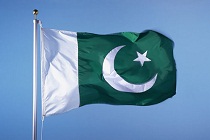 “Modi will need peace around the region to actualise his policy of bringing big money into India”
“Modi will need peace around the region to actualise his policy of bringing big money into India”
–Khaled Ahmed, Consulting Editor, Newsweek Pakistan
The world has to adjust to Modi; but that means it will be a two-way process – Modi will tweak his sails now and then to get more of the world on board. India’s periphery will have to do most of the adjustment – some morally necessary but a lot realistically opportune.
There is a speculative consensus in India that Modi will need peace around the region during his tenure to actualise his policy of bringing big money into India. He will therefore be attracted to any trade-first overture from Pakistan end-loaded with a comprehensive dialogue on bilateral issues that could go on forever. This consensus however carries a caveat: Modi will have zero tolerance for any future attempt at cross-border terrorism by Pakistan’s non-state actors.
The caveat becomes nuanced when seen in the light of Prime Minister Sharif’s trade-first overture to India. If the two countries are embarked upon normalisation and fast-track, some of the trade-route and economic integration agreements signed at the South Asian Association of Regional Cooperation and a common strategy of avoidance of war against Pakistan’s non-state actors can be adopted with the assistance of a grateful international community.
 “Modi can’t be treated as a pariah if he shoulders the hopes of a billion Indians”
“Modi can’t be treated as a pariah if he shoulders the hopes of a billion Indians”
–Seema Sirohi,
Analyst, Washington
Narendra Modi’s historic mandate has given the U.S. government the perfect reason to open a new chapter with him. He can’t be treated as a pariah if he shoulders the hopes of a billion Indians.
The Obama Administration and the U.S. Congress appear ready to engage with Modi and get over the “visa hangover.” President Obama personally called to congratulate Modi and invited him to visit, while Secretary of State John Kerry tweeted directly to express his desire to work with him.
In addition, effusive statements from various Congressmen and senators have poured in to set a positive tone. Sen. Mark Warner, co-chair of Senate India Caucus and Congressman Joseph Crowley, vice chair of the India Caucus in the House of Representatives both warmly acknowledged the world’s largest democratic exercise and Modi’s decisive victory.
The positive signals from Washington, which shunned Modi for over seven years, are clear. For his part, Modi has said more than once in his interviews that strengthening ties with the United States is important. With the first phase of signaling successfully done, both sides can begin to bury the “visa” issue under a renewed engagement.
The first order of business has to be the appointment of a new U.S. ambassador to India. Whoever is nominated will have the heavy task of repairing, lifting and building the relationship which has stalled and then dipped over the Khobragade affair.
A visit by a senior U.S. official — perhaps Defence Secretary Chuck Hagel or Kerry — could go a long way to break the ice. A person who can help ease the conversation from the U.S. side is already in place — Assistant Secretary of State Nisha Desai Biswal is a Gujarati American.
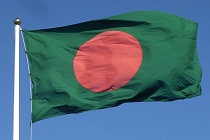 “Maybe it will take a Modi to put the Indo-Bangladesh relationship on new footing. It is an opportunity he should not miss”
“Maybe it will take a Modi to put the Indo-Bangladesh relationship on new footing. It is an opportunity he should not miss”
–Zafar Sobhan, Editor,
Dhaka Tribune
The rise of Narendra Modi, culminating in this month’s landslide election victory for the BJP and his ascension to prime minister, is being viewed with trepidation in Bangladesh.
For the past decade, Modi has been known mostly for the Gujarat riots that occurred on his watch, and his incendiary rhetoric on the campaign trail, in which he put illegal immigrants from Bangladesh squarely in the cross-hairs and made it clear that uprooting them would be a priority for his government, has done nothing to allay fears across the border.
While every country has the right to get tough on illegal immigration, it is the tenor of his comments that lead Bangladeshis to worry that with Modi in office India may take a harder line on Bangladesh in general, and that the good relations which are so crucial to both countries may be in jeopardy.
But all this gives Modi a huge opportunity. He can rewrite the narrative and win an enormous amount of goodwill with a few well-conceived gestures of conciliation, such as an early visit to Dhaka and signing the Teesta water deal that would signal that he considers Bangladesh a foreign policy priority and is willing to act on Dhaka’s concerns.
Better Indo-Bangladesh relations would be in India’s interests, and the abiding mystery this side of the border is why India has not done more to shore them up, when the dividends to the country in terms of security and trade would be so large.
Modi can show that he is the savvy and pragmatic politician that he is reputed to be by reaching out to Bangladesh. It took a Nixon to go to China. Maybe it will take a Modi to put the Indo-Bangladesh relationship on new footing.
It is an opportunity he should not miss. The potential benefit to India — as well as Bangladesh — is incalculable.
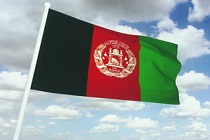 “Kabul expects to see an even friendlier India in the next sixty months of Modi’s government”.
“Kabul expects to see an even friendlier India in the next sixty months of Modi’s government”.
–Waliullah Rahmani, Director, Kabul Centre for Strategic Studies
With Narendra Modi’s success, many expect a change in India’s foreign policy and regional relations. At a time when the climate of Afghan politics is changing, domestically and internationally, there are concerns about how this could impact Kabul-Delhi relations and whether India’s stand vis-a-vis Afghanistan will change in the Modi era.
Afghanistan has always kept India at the heart of its regional policies. In the post-Taliban era, India has donated heavily towards Afghanistan’s reconstruction and rehabilitation and is seen as a key ally.
However Pakistan, which is regarded by some as a spoiler and by others as a key player in Afghanistan, is a major factor in Kabul-Delhi relations. Given the BJP’s strong stance against Pakistan, Kabul expect to see an even friendlier India in the next sixty months of Modi’s government.
A friendly India is highly vital for the new government in Afghanistan which is likely to be formed in the next two months. Afghanistan will need India’s economic, security and political support in the new global order, domestically and internationally.
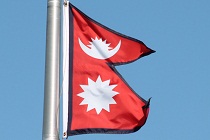 “No two contiguous neighbours have such inter-connectedness. However the linkages are not reflected in policy or practice”
“No two contiguous neighbours have such inter-connectedness. However the linkages are not reflected in policy or practice”
– Chiran Jung Thapa,
Analyst, Kathmandu
The victory of a BJP which espouses Hindutva has evoked hopes of closer ties between Nepal and India – the only two nations with a Hindu majority. Although prominent Nepali commentators believe that India’s policy towards Nepal will remain unaltered, I believe it will change, as it should. The new political dispensation will hopefully grasp the inalienable truth that no other country in the world will ever come closer to India than Nepal due to the geographical proximity, open border policy as well as cultural and religious affinities. The fact that Nepalis continue to serve in the Indian armed forces to safeguard its frontiers is a testament to the unparalleled bond between our two nations. No two contiguous neighbours have such inter-connectedness.
However, the linkages are not reflected in policy or practice. No Indian Prime Minister has visited its closest neighbour in more than a decade. Narendra Modi, however, must make his first foreign stopover in Nepal to reaffirm that unshakeable bond.
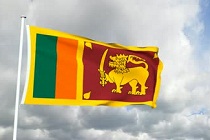 “In recent years, pressure from the Tamil Nadu parties has made it impossible for Sri Lanka-India ties to progress beyond the mundane”
“In recent years, pressure from the Tamil Nadu parties has made it impossible for Sri Lanka-India ties to progress beyond the mundane”
–Namini Wijedasa, Assistant Editor, The Sunday Times
Sri Lanka’s rulers reacted to news of BJP’s resounding electoral victory with barely concealed glee. India’s centre no longer depends on provincial parties to form a government and President Rajapaksa is hopeful that future relations will be shaped without “interference” by Tamil Nadu politicians on “internal matters”. Media Minister Keheliya Rambukwella told journalists that the strength of the BJP’s victory was a “blessing” for Sri Lanka.
In recent years, pressure from the Tamil Nadu parties has made it impossible for Sri Lanka-India ties to progress beyond the mundane. They had bitterly opposed the government’s war against Tamil Tiger rebels. Since the conflict ended, TN politicians have demanded autonomy for Tamils.
Mr Rajapaksa’s Sinhala nationalist regime isn’t giving way. It has promised Indian leaders to fully implement the 13th Amendment to the Constitution but is on a drive to wrest back more control from the provinces. The North, which is majority Tamil, is heavily militarised. Now, with TN no longer calling the shots, the government feels Mr Modi will care less for Sri Lanka’s Tamils.
This has caused trepidation among Tamil parties here. On the one hand, Tamil newspapers have expressed hope that Mr Modi, a Hindu nationalist, will show affinity and so take their fears to heart. They also anticipate that, having risen from the provinces, he has a better appreciation of the value of sharing power.
The Tamil National Alliance—the main Tamil party— has sought an early appointment with Mr Modi and AIADMK leader J. Jayalalitha to discuss the issues confronting them. They know well that if the Indian government stops taking up their concerns, it would be back to square one for the country’s embattled Tamils.
This article was exclusively written for Gateway House: Indian Council on Global Relations. You can read more exclusive content here.
For interview requests with the author, or for permission to republish, please contact outreach@gatewayhouse.in.
© Copyright 2014 Gateway House: Indian Council on Global Relations. All rights reserved. Any unauthorized copying or reproduction is strictly prohibited


